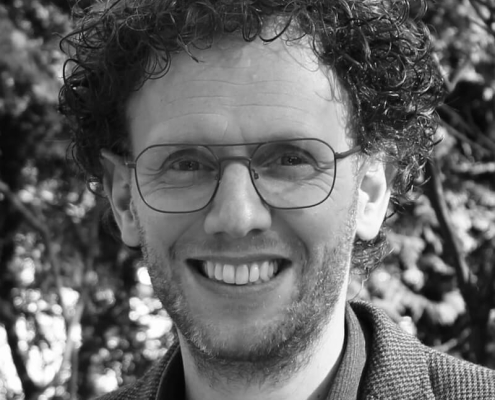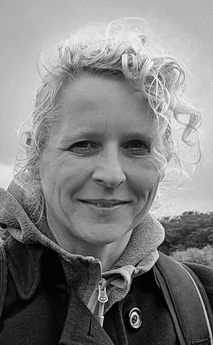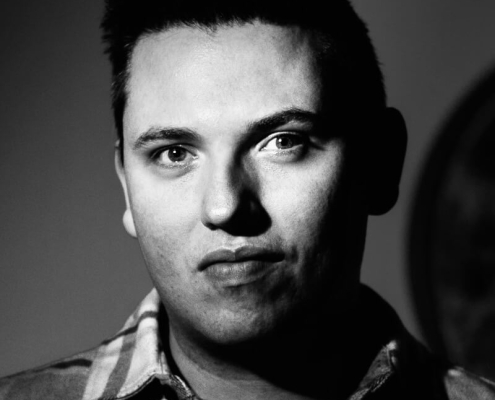Meditation for everyone
Making meditation accessible and personal for everyone. That is our mission.
Making meditation accessible and personal for everyone. That is our mission.
The substantive line that we at 30NOW following stems from a contemporary approach to Buddhist meditation. Central is the practice of mindfulness or attention. An acknowledging awareness of physical and mental experiences. Although there are differences in meditation style, all meditations follow the principle of mindfulness. Meditations are also offered that are complementary and develop other qualities such as calmness, kindness and compassion.
30NOW was founded by Dirk Wolbers and Joost van den Heuvel Rijnders and started on January 10, 2019.
It started with an online 30 Day Series that allowed you to experience the power of meditation in an accessible and personal way. It has been growing ever since 30NOW with more guides, offerings and styles to a personal online meditation platform for everyone.
The “30” stands for the 30 Day Series in which you will explore and experience meditation step by step. “NOW” stands for the present, the here and now. Of 30NOW train your mind to live in the present moment and avoid being overly concerned with the past and future. As a result, stressful emotions such as fear, hope, fear and expectations have less of a hold on you. When you live fully in the moment, you experience peace, acceptance, freedom, or happiness.
Embracing the richness and diversity of Buddhist traditions with their proven methods and styles.
The practical application of Buddhist meditation styles and their integration into everyday life. This requires an open and investigative approach.
Facilitating meditations and trying to make them accessible to everyone. This concerns young, old, newcomers and more experienced participants.
Creating an environment where participants can practice together, exchange experiences and thus support each other.






Together with a growing number of participants and supervisors, we create a more accessible and versatile meditation platform every day. We learn from the user experiences and with the financial contributions from the Membership we can further develop and grow the platform.
With a voluntary contribution you support our pursuit of 'Meditation for everyone'. In this way you enable investments in technology, support, communication and the expansion of our offering. Do you prefer to transfer manually? This can be done to bank account number NL11BUNQ2067341758 30NOW
"*" indicates required fields
Most of the offerings are in Dutch, but we regularly offer Live Lectures in English. In addition, some Live Courses, In-Depth Series and Live Retreats are also largely in English. See 30NOW.nl/courses-series and use the language filter.
Good to know: The translation option in the menu bar is a feature that allows you to easily translate the content of 30NOW.nl from Dutch to English. The button, when clicked, activates a translation tool that automatically converts the text on the page from Dutch to English, making it more accessible for users who speak English but not Dutch.
 0
0
 0
0
Nee, 30NOW does not currently have ANBI status. This means that donations to 30NOW are not eligible for tax deduction based on ANBI schemes.
For more information about ANBIs and tax deductions, please visit the Tax Authorities website
 0
0
 0
0
If you sit still for a while, you will notice that you are actually thinking all the time. You think about your agenda for today, how your friend is doing, about the garbage that still needs to be cleaned up, about a comment from a colleague at work, etcetera. Because your mind is always running, there is no space to experience yourself and this moment. Of 30NOW meditation trains the mind to experience this space again and to return to the here and now.
 1
1
 0
0
Do you have extensive experience in guiding meditations and are you interested in participating? Then sign up via this registration form. We will contact you to discuss the wishes and expectations of both sides.
 0
0
 0
0
Op 30NOW.nl/live you will find the current schedule and you can activate e-mail announcements.
In general, new Live sessions are given daily in addition to a lecture on Sunday evening.
Do you have another question about 30NOW Live? Share it with us?
 1
1
 0
0
We distinguish between 4 financial flows:
At the same time, money should never be a barrier to participation. That is why:
If it is not possible to pay the Basic Membership amount or course participation fee, please contact contact us so that we can come to a suitable appointment for you. Because although we are an organization that incurs costs, we believe that money should never be the reason for not getting access.
Thanks on behalf of the team of 30NOWThank you on behalf of all supervisors for your support!
 1
1
 0
0
We distinguish between 4 payments:
At the same time, money should never be a barrier to participation. That is why:
If it is not possible to pay the Membership base amount or a course participation fee, please contact contact us so that we can make a suitable appointment for you. Although we incur costs as an organization, we believe that money should never be an obstacle to access.
Thanks on behalf of the team of 30NOWThank you on behalf of all supervisors for your support!
 4
4
 0
0
Is your question not listed? Please contact Team Support, we are happy to help you!
 1
1
 0
0
How can I contact the different supervisors? 30NOW explore?
To assist the various supervisors 30NOW to explore you go to 30NOW.nl/supervisors to get an overview of all supervisors. Each profile page offers, among other things, a short biography and the individual offer 30NOW such as an overview of the live sessions and courses that the supervisor offers.
We are also developing new functionalities with which you can easily follow the offers of your favorite supervisors. Until then, you can visit their profile pages regularly for the latest updates.
 1
1
 0
0
You can, but at 30NOW we bring theory and practice together so that you only need a quiet seat and a listening ear to experience the power of meditation. This takes less energy and effort than when you first read up on yourself and then gain experience in practice. In addition, you are there with 30NOW sure that you are easily in contact with experienced counselors and kindred spirits who are also working on this.
 2
2
 0
0
No. For reasons of privacy and data protection, we choose not to use Google Analytics. Partly by not using Google Analytics, we ensure that as little information as possible is sent to third parties.
As an analysis solution, we use a paid application that is characterized by a strong focus on privacy, is GDPR and CCPA compliant, does not use cookies and does not collect any personal data. This benefits the privacy of our visitors.
 4
4
 0
0
The “30” stands for the 30 Day Program in which you will explore and experience meditation step by step.
“NOW” stands for the present, the here and now. Of 30NOW train your mind to live in the present moment and avoid being overly concerned with the past and future. As a result, stressful emotions such as fear, hope, fear and expectations have less of a hold on you. When you live fully in the moment, you experience peace, acceptance, freedom, or happiness.
 1
1
 0
0
We provide exercise and eat healthy. But meanwhile we lead a restless life and forget about our mental health. We are permanently ON. Connected to everyone, everything and everywhere. In addition, we are also caught in a race to keep all the balls in the air. We literally and figuratively run past ourselves.
With 30NOW train the mind with meditation to live in the present moment and avoid being overly concerned with the past and future. Stressful emotions such as fear, hope, fear and expectations have less of a hold on you. Of 30NOW you learn to live fully in the moment and you experience peace, acceptance, freedom, or happiness.
 1
1
 0
0
We opt for a collaboration with several supervisors. Both 30NOW if the supervisors are continuously developing and it may be that after some time the cooperation is no longer appropriate.
Do you have a question about this? Then share it with Team Support.
 0
0
 0
0
 0
0
 0
0
Here you will find information about Day Meditations. Do you have any other questions or comments about 30NOW Day Meditations? Please contact Team Support.
 0
0
 0
0
Here find information about 30NOW First aid. Do you have any other questions or comments about 30NOW First aid? Please contact Team Support.
 0
0
 0
0
Although mindfulness has its roots in Buddhism, you don't have to be a Buddhist at all to practice mindfulness. The well-known American professor Jon Kabat-Zinn developed mindfulness training forty years ago by detaching the technique of meditation from the Buddhist context and making it accessible to Westerners. Religion is not involved in the training, but accessible meditation exercises, yoga and other ways to learn to live more consciously. Meanwhile, the MBSR (English: mindfulness-based stress reduction) and MBCT (English: mindfulness-based cognitive therapy) are very popular and fully accepted in the West.
Mindfulness refers to:
 3
3
 0
0
Here find information about 30NOW reactions. Do you have any other questions or comments about 30NOW First aid? Please contact Team Support.
 0
0
 0
0
The substantive line that we at 30NOW Following is a contemporary approach to Buddhist meditation. Central is the practice of mindfulness or attention: an acknowledging awareness of physical and mental experiences. Although there are differences in styles and content of the meditations offered, they all align with the principle of mindfulness. Meditations are also offered that can develop other qualities such as calmness, kindness and compassion.
See also 30NOW.nl/about-30now
 4
4
 0
0
At the moment 30NOW only available in Dutch. As we develop further, we hope to be able to offer more languages in the future.
 0
0
 0
0
Meditation is practiced in various religious traditions and is therefore not “exclusively” Buddhist. You could think of meditation as a break from your busy life, where you take a few deep breaths and turn your attention inward. What you discover is not necessarily something religious, but yourself: your thoughts, feelings, deeper beliefs, patterns and personality traits.
 1
1
 0
0
Distracting thoughts are normal during meditation. It is important to acknowledge these thoughts and let them pass without judgment. Then gently return your attention to your breathing or the focus point of your meditation.
 2
2
 0
0
If you sit still for a while, you will notice that you are actually thinking all the time. You think about your agenda for today, how your friend is doing, about the garbage that still needs to be cleaned up, about a comment from a colleague at work, etcetera. Because your mind is always running, there is no space to experience yourself and this moment. Of 30NOW meditation trains the mind to experience this space again and to return to the here and now.
 1
1
 0
0
The process of meditating is similar to building your fitness through sport, or learning to play an instrument. Only if you practice and keep doing this for a long time, you will experience the effects.
The degree and time in which you experience an effect differs per person. There are people who notice strong effects after the first time, while others notice mild effects after two weeks or only two months. Please give yourself the space and time to investigate this yourself. You will almost certainly experience positive effects in the long run.
 3
3
 0
0
The ideal duration of a meditation session varies per individual. For beginners, 5-10 minutes is a good starting point. As you become more comfortable you can gradually increase this. The most important thing is consistency, not the length of the session.
 1
1
 0
0
Hundreds of scientific studies have been conducted on the health effects of meditation. The results generally indicate that people who meditate regularly have better mental and physical health than people who do not meditate.
 0
0
 0
0
Meditation can have a positive effect on the treatment of depressive symptoms, but usually especially if you are already on your way back from a depression. In the case of depressive complaints, we therefore recommend that you first consult your doctor or practitioner before you start meditating. 30NOW/ meditation.
 4
4
 0
0
Is your question not listed? Please contact Team Support, we are happy to help you!
 1
1
 0
0
Falling asleep during meditation is a common occurrence. This could be a sign of relaxation or fatigue. Try practicing meditation at a different time or in a less comfortable position to stay awake.
 1
1
 0
0
No, meditation is basically very simple. But because of our often entrenched patterns and beliefs, it sometimes feels more difficult than you would expect. We are used to directly condemning or overthinking all thoughts, emotions and events.
You can say that the difficulty of meditation lies in its simplicity.
 2
2
 0
0
That is a common misconception. Meditating can have direct benefits for your own well-being, but at the same time people around you will experience that you feel better about yourself. That you pay more attention – to them too! – and that you are more patient or kind towards you family, friends, your partner or colleagues. In short, meditation can help to improve relationships.
 1
1
 0
0
According to the dictionary, meditation stands for: “contemplation, reflection, concentration on the inner self”. There's little silliness about it.
It is a practical training in becoming aware of what is going on inside yourself. However, it originally comes from Asia, which means that the method is unknown to many people. In addition, it quickly evokes associations with incense, lotus postures, Buddha figurines and meditation cushions. Funnily enough, these elements are not necessary at all in meditation, but some find these aspects helpful.
 1
1
 0
0
Yes, anyone can learn to meditate. Meditation is a training of the mind and social status, religion or age, for example, are not an obstacle. It only takes an investment of time and perseverance to meditate.
 1
1
 0
0
You can, but at 30NOW we bring theory and practice together so that you only need a quiet seat and a listening ear to experience the power of meditation. This takes less energy and effort than when you first read up on yourself and then gain experience in practice. In addition, you are there with 30NOW sure that you are easily in contact with experienced counselors and kindred spirits who are also working on this.
 2
2
 0
0
Yes, meditation can stimulate creativity and problem-solving skills by freeing up the mind and allowing new perspectives and ideas to emerge.
 0
0
 0
0
Yes, meditation can be effective in managing chronic pain. It helps shift the focus from the pain and can change the brain's perception of pain. Mindfulness and body scan meditations are particularly helpful in this regard.
 1
1
 0
0
Yes, meditation can help improve relationships by increasing empathy and patience, and reducing stress and reactive emotions. Mindfulness meditation is particularly effective in promoting emotional intelligence and communication skills.
 0
0
 0
0
Of course. Worrying is thinking in circles, and that is very difficult to break, especially at night. Through meditation, you learn to notice those thoughts sooner and let go of them with what view from a distance. With this the thoughts will make you less in control.
 1
1
 0
0
Yes, meditation and yoga complement each other well. Yoga prepares the body and mind for meditation through physical postures and breathing exercises. Many people find that yoga deepens their meditation practice.
 0
0
 0
0
If you meditate regularly, you can have spiritual experiences. Through the exercises focus more on the present moment. In this moment you can glimpse spiritual dimensions. Ultimately, being consciously present in body and mind is already a spiritual activity in itself.
 1
1
 0
0
Just like sports and playing an instrument, practice is needed to learn the skill. With meditation you train the mind to stay mentally fit; this calls for structural repetition. Daily training is especially important in the first four weeks to build up a routine and experience concrete change.
 2
2
 0
0
No, you don't have to believe in anything! 30NOW uses effective meditation techniques that have been scientifically researched. These are separate from religion, gurus and beliefs. The point is that you yourself will investigate how meditation can work for you. For that you need some patience, trust and perseverance, but no faith.
 2
2
 0
0
In general, the mornings are the most pleasant when you start meditation. But it is advisable to take the sessions at the time of day that suits you best so that you don't have to force yourself. Meditating is also great when you come home from work or before you go to sleep.
 2
2
 0
0
Find a reasonably quiet, comfortable place where you won't be easily disturbed. It helps if you associate this place with tranquility; so not behind a full desk or next to a full laundry basket. But important is that you 30NOW can listen anywhere, so you can also just close your eyes.
 2
2
 0
0
Although mindfulness has its roots in Buddhism, you don't have to be a Buddhist at all to practice mindfulness. The well-known American professor Jon Kabat-Zinn developed mindfulness training forty years ago by detaching the technique of meditation from the Buddhist context and making it accessible to Westerners. Religion is not involved in the training, but accessible meditation exercises, yoga and other ways to learn to live more consciously. Meanwhile, the MBSR (English: mindfulness-based stress reduction) and MBCT (English: mindfulness-based cognitive therapy) are very popular and fully accepted in the West.
Mindfulness refers to:
 3
3
 0
0
A good meditation position is one that is comfortable and stable. You can sit on a chair with your feet flat on the floor, or on a cushion on the floor with your legs crossed. Make sure your back is straight but not tense.
 1
1
 0
0
A mantra is a word or phrase that is repeated during meditation to focus and calm the mind. Mantras can help reduce distracting thoughts and achieve a deeper state of meditation.”
 1
1
 0
0
Feelings are usually recognizable experiences in your body. For example, when you are stressed, you may feel tension in your neck and shoulders. You also feel emotions in your body, for example sadness as a lump in your throat or anger as warmth and palpitations.
Thoughts are the images, memories, beliefs, judgments, and reflections that roam through your head, often causing feelings.
 0
0
 0
0
Meditation is a practice of focusing and calming your mind. Mindfulness is a form of meditation that focuses on being aware of the present moment without judgment. Mindfulness can be practiced both inside and outside of meditation sessions.
 0
0
 0
0
To quote Jon Kabat-Zinn, the founder of modern mindfulness, "It's practicing your awareness, moment by moment, without judgment."
A state of clear, non-judgmental, and non-wandering attention to the content of consciousness. Regardless of the experience, whether the content is pleasant or unpleasant.
Developing this quality of mind will help: reduce pain, anxiety, and depression; improving cognitive function; it even produces changes in gray matter density in brain regions related to learning and memory, emotional regulation and self-awareness.
 0
0
 0
0
If you sit still for a moment, you notice that you are almost constantly thinking. Your agenda for today, that funny Instagram post, how your girlfriend/boyfriend is doing, the garbage that still needs to be taken away, a comment from a colleague at work, worries about the future, etcetera. Because your mind can run so fast, there is little room left to experience yourself and your surroundings in the moment. With meditation you train the mind to experience this space in the here and now.
 0
0
 0
0
What you may experience as a disadvantage is that you routinely have to invest time and sincerely want to open yourself to the possible insights that meditation can bring. Meditation is also not always suitable for people with psychiatric complaints, such as untreated trauma or depression that is not yet in the recovery phase.
 3
3
 0
0
Meditation teaches you to calm your mind, develop concentration and increase your awareness. With greater awareness of your thought patterns and emotional habits, you learn to look at yourself and your surroundings in a more objective and competent way. This helps you to deal with life a little easier and to go along with it. You will understand emotions better and you can recognize your impulsiveness and reactivity earlier and sometimes also go breaking through.
Another result is a sharper focus. Meditation can increase your ability to focus and concentrate.
It can also help relieve sleep problems and insomnia by teaching you to stop worrying. Further frequently mentioned benefits can be:
 1
1
 0
0
The substantive line that we at 30NOW Following is a contemporary approach to Buddhist meditation. Central is the practice of mindfulness or attention: an acknowledging awareness of physical and mental experiences. Although there are differences in styles and content of the meditations offered, they all align with the principle of mindfulness. Meditations are also offered that can develop other qualities such as calmness, kindness and compassion.
See also 30NOW.nl/about-30now
 4
4
 0
0
Breathing is important in meditation because it helps to calm the body and mind. By focusing your attention on your breathing, you can achieve a deeper state of relaxation and awareness. Breathing meditations, such as breathing mindfulness, are a good way to start.
 0
0
 0
0
If you meditate regularly, you can have spiritual experiences. Through concentration exercises you let go of your usual thoughts and patterns and focus on the present moment. In this moment you can experience a glimpse or strong power of spiritual dimensions. Ultimately, being consciously present with body and mind is already a spiritual activity in itself. Other spiritual experiences you could have:
 9
9
 0
0
You don't have to worry about meditation turning you into a fuzzy person. With meditation you train your mind; the exercises help you to train your attention.
In your daily life you will probably experience a stronger concentration and more peace of mind. In addition, you are probably more likely to end up in a state of “Flow”. Psychologists use the word “Flow” for the mental state associated with intense concentration. A relaxed alertness in which distractions disappear and activities seem to come naturally.
 1
1
 0
0
At least not "dumber"! By meditating regularly you get a little more space in your head and you may also pick up new things more easily. It seems that people remember things better when they meditate regularly. But we can't guarantee whether you'll really get smarter!
 0
0
 0
0
30NOW.nl uses functional and analytical cookies. Check out our for more information.
×We may request that cookies be placed on your device. We use cookies to let us know when you visit our websites, how you interact with us, to enrich your user experience and to customize your relationship with our website.
Click on the different sections for more information. You can also change some of your preferences. Please note that blocking some types of cookies may impact your experience on our websites and the services we can provide.
These cookies are strictly necessary to provide you with services available through our website and to use some of its features.
Because these cookies are strictly necessary to deliver the website, rejecting them will affect how our site functions. You can always block or delete cookies by changing your browser settings and forcibly blocking all cookies on this website. But this will always ask you to accept/refuse cookies when you visit our site again.
We fully respect if you want to refuse cookies, but to avoid asking you again and again kindly allow to store a cookie for that. You are always free to opt out or opt out of other cookies to get a better experience. If you refuse cookies, we will delete all cookies set in our domain.
We provide you with a list of cookies stored on your computer in our domain so that you can check what we have stored. For security reasons, we cannot show or change cookies from other domains. You can check these in your browser's security settings.
We also use various third-party services such as Google Webfonts, Google Maps, and third-party video providers. Since these providers may collect personal information such as your IP address, you can block them here. Please note that this may significantly reduce the functionality and appearance of our site. Changes are not effective until you reload the page
Google Web Font Settings:
Google Maps Settings:
Google reCaptcha settings:
To embed Vimeo and Youtube videos:
You can read more about our cookies and privacy settings on our Privacy Policy page.
